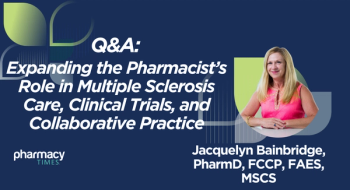
- March 2017 Central Nervous System
- Volume 83
- Issue 3
Early Treatment of MS Signs May Slow Disease Progression
A recent study has suggested that starting patients on multiple sclerosis medication soon after they show initial signs of the disease could prolong the time before the condition becomes fully diagnosable.
A recent study has suggested that starting patients on multiple sclerosis (MS) medication soon after they show initial signs of the disease could prolong the time before the condition becomes fully diagnosable.
The study, published in Neurology, examined data on 468 patients who experienced a first episode suggestive of MS, such as numbness, vision problems, balance issues, or an MRI that showed possible signs of MS. The participants were randomly assigned to receive either a placebo or early treatment with interferon beta-1b, with those in the placebo group allowed to switch to either interferon beta-1b or another drug after 2 years or after they were diagnosed with MS.
After an 11-year study period, the research team found that patients who had received the early treatment were 33% less likely to be diagnosed with MS than those who initially received a placebo. Participants in the early group also experienced their first relapse of the disease later than those in the delayed group (1888 days compared with 931 days) and had a 19% lower overall yearly relapse rate (0.21 compared with 0.26).
“Not much research has been done on how starting treatment this early affects the long-term course of the disease,” said study author Ludwig Kappos, MD, in a press release. “Our study adds to the evidence supporting treatment at the earliest sign of the disease and indicates that early treatment has a long-lasting effect on disease activity.”
Articles in this issue
almost 9 years ago
Biosimilar Products in Rheumatoid Arthritis: Role of the Pharmacistalmost 9 years ago
Case Studies (March 2017)almost 9 years ago
Can You Read These Rxs? (March 2017)almost 9 years ago
Pet Peeves (March 2017)almost 9 years ago
Investigations Unfold Major Generic Drug Price-Inflation Conspiraciesalmost 9 years ago
Generic Product News (March 2017)almost 9 years ago
Exercise May Alleviate ADHD Symptomsalmost 9 years ago
Medication Can Reduce Risky Behavior in Kids and Teens with ADHDalmost 9 years ago
Epileptic Patients Face Heightened Suicide RiskNewsletter
Stay informed on drug updates, treatment guidelines, and pharmacy practice trends—subscribe to Pharmacy Times for weekly clinical insights.


























